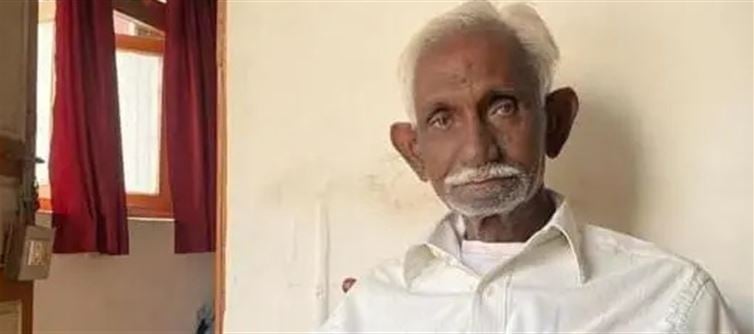
🎬The Tragedy No Courtroom Can Reverse
In a forgotten corner of raipur stands an old, crumbling house — not just a residence, but a memorial of what happens when justice moves slower than death. Inside it lives an 84-year-old man who spent almost four decades proving he was innocent of a ₹100 bribe he says he refused to take. On paper, he has finally won.
In reality, he has lost everything that a human life is built on.
💥 India’s Most Expensive ₹100
1️⃣ The Allegation That Stole a Lifetime
In 1986, working as a clerk in the state transport corporation, Jageshwar prasad Avadhia was accused of accepting a ₹100 bribe — the cost of a meal today, but the price of his world collapsing back then.
2️⃣ 39 Years of Silence, Suspicion & Social Exile
While court files gathered dust, neighbors whispered, relatives disappeared, and society declared its verdict long before the judge did.
An acquittal delayed is character assassination delivered.
3️⃣ The System Didn’t Just Ignore Him — It Erased Him
He lost his career, his income, his honour, and his identity.
The government forgot him,
the society abandoned him, and the calendar devoured him.
4️⃣ The Cruelty No Judgment Can Repair
His wife died without proper medical care, his children were denied education, opportunities, and marriages, and his home turned into a museum of dust-covered documents and unanswered prayers.
5️⃣ The Final Verdict: Truth Arrived… But the audience Had Left
When the court finally acquitted him — with respect, with clarity, with validation — he did not celebrate.
There was no one left to celebrate with.
🔚 Mic-Drop Closing Paragraph
Justice is not justice when it becomes a historical certificate instead of a living remedy.
A court can restore innocence, but who will restore relationships, dignity, lost youth, or a dead spouse?
This isn’t one man’s tragedy — it’s a reminder that in India, sometimes the accused dies long before the case does.




 click and follow Indiaherald WhatsApp channel
click and follow Indiaherald WhatsApp channel